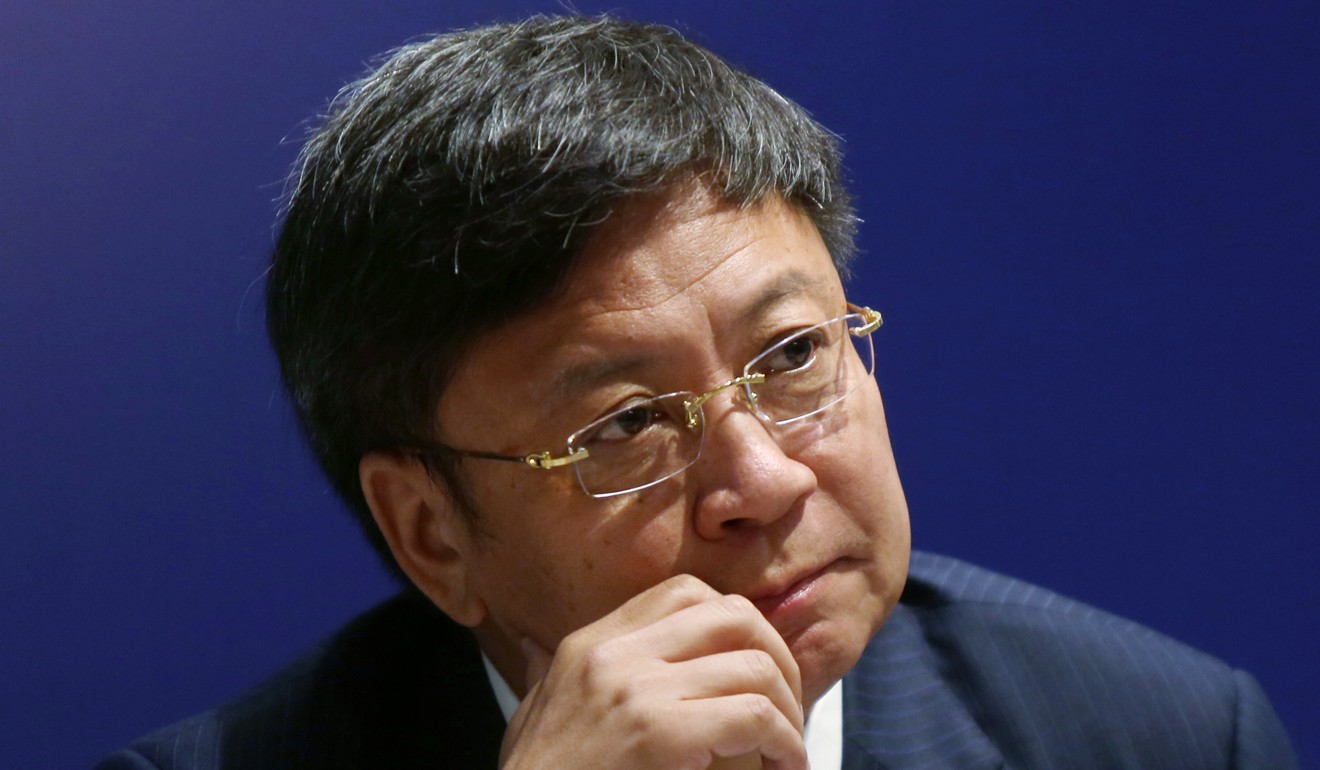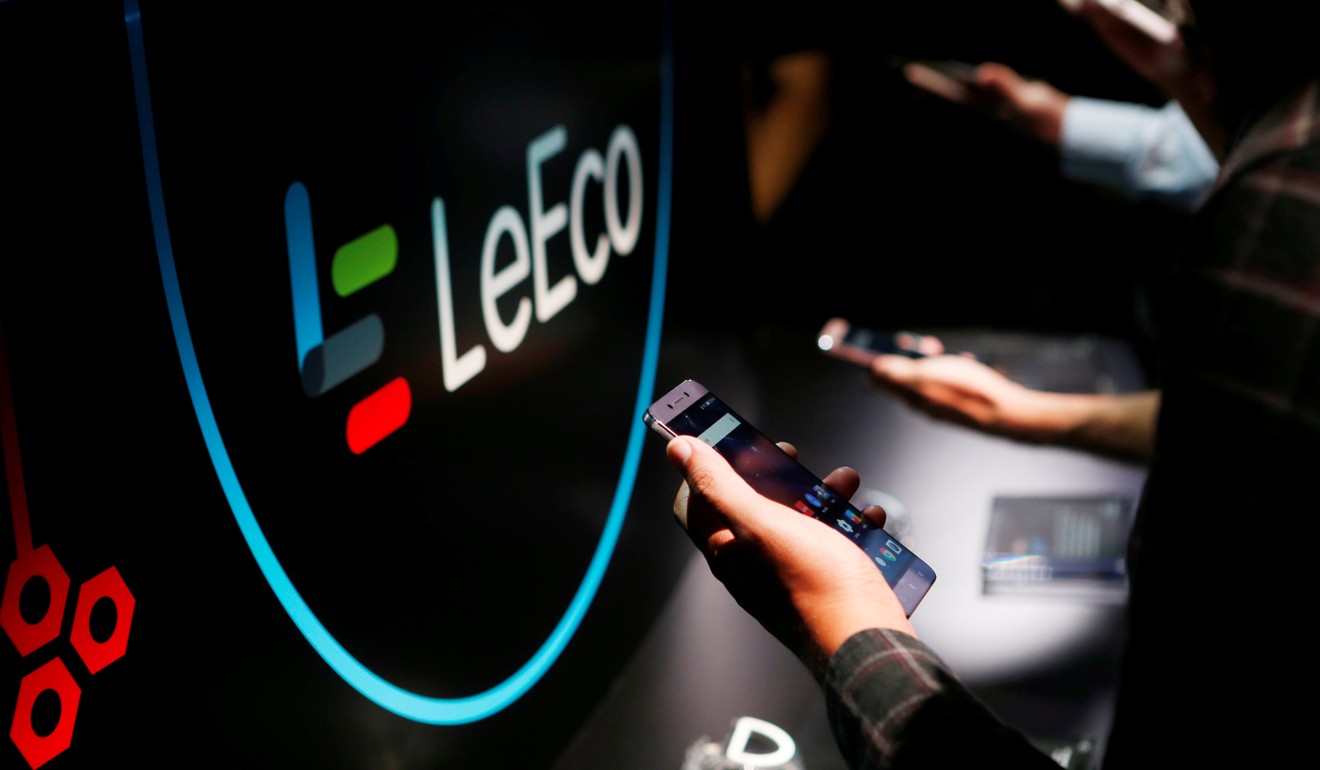
Sunac sets aside US$2.64b to cover losses in Leshi, conceding its recovery strategy has ‘failed’
‘How can I cut off an arm, when the head is already off?’, asked Sunac’s chairman Sun Hongbin, responding to a question on whether he will continue to seek cost cuts in the ill-fated investment
Sunac China Holdings, mainland China’s fourth largest developer, has admitted that its investment in troubled video streaming platform Leshi was a failure and represented its biggest loss since listing in Hong Kong in 2010.
Sunac has now written off most of its investment in Leshi Internet Information and Technology, setting aside 16.6 billion yuan (US$2.64 billion) to cover its losses.
That breaks down into 9.98 billion yuan to write down debt, impaired loans valued at 2.1 billion yuan and 4.48 billion yuan in investment losses, the Tianjin-based company said during the announcement of its 2017 financial results.
“How can I cut off an arm, when the head is already off,” said Sunac’s chairman founder Sun Hongbin, responding to a question whether he will continue to seek cost cuts in the ill-fated investment.
Combined with other investments and loan guarantees, it is estimated to have invested 18.6 billion yuan in Leshi-related businesses.
Sunac actually invested in three companies under the LeEco umbrella: Leshi Internet Information and Technology, New Leshi Zhijia, which manufactures TV sets and in which it has a 33.5 per cent stake, and Le Vision Pictures, a film production company, 40.75 per cent of which it owns.
“It is a failed investment, and it has cost the company,” Sun said, however, that he does not regret the move, and believes the logic behind the investment was on the right track.
“There will [always] be successful and failed investments and it is impossible to make money from every one.
It is a failed investment, and it has cost the company
“Without the experience of pain and suffering from of a loss, even the smartest person cannot grow.”
The chairman added he still firmly believes the government’s overall societal philosophy of a “better life” is about seeking upgrades in consumption, and that covers culture, entertainment, health care, education, and tourism, adding the Leshi experience will not deter Sunac’s further investment in those sectors.
“Our core business is property and we are optimistic about it in three to five years; however, there might not be any land available in Beijing or Shanghai in 10 years. We should get prepared to restructure, and Leshi is a cost during that process,” Sun said.

Sun rejected the suggestion of buying Leshi himself, adding “I have no money.”
Even factored in the potential loss from the troubled platform, Sunac enjoyed a threefold jump in net profit last year, earning 11 billion yuan due to China’s property boom.
But its expenses and losses increased to 10.68 billion yuan in 2017, mainly due to the impairment provision related to Leshi-linked companies.
Core profit attributable to shareholders more than tripled to 11.12 billion yuan, up 259 per cent from a year earlier, mainly driven by a 140.3 per cent jump in contracted sales, which fetched 362.01 billion yuan in 2017.
Sunac has now set a target of 450 billion yuan in sales for 2018, and estimates its saleable resources as worth 674.5 billion yuan.
The company declared a final dividend of 0.501 yuan per share, up 94.9 per cent year on year.
Shares in Sunac jumped 1.34 per cent to HK$30.3 on Thursday amid a slightly recover of Hang Seng Index, up 0.24 per cent to 30,093.38.
However, amid the country’s control on property market, the company will slow its pace of buying land, added Sun.

“We have not bought one parcel of land in open market since 2016. Our current main task is risk control and deleveraging,” he said.
“We see the main risk now is buying expensive land. We have a sufficient land bank which we built at low prices, and to keep the company safe, we will control the pace of buying.”
At the end of 2017 it had a total land bank of 141.73 million square metres.
“The government’s policy tightening measures will have a much bigger impact than previous adjustments. We have seen buyers’ expectation on houses change and bank credits tightening,” he added.
Wang Mengde, its chief executive officer, said Sunac will focus on destocking and lower its gearing ratio, but did not give a specific target. At the end of 2017, it reported a gearing ratio of 66.9 per cent, down from 72.2 per cent as at 30 June 2017.
It will also continue to explore new business sectors and a focus will remain the cultural tourism projects it bought last year from property giant Dalian Wanda.
“We see great room of growth in culture and tourism sector and in long term we would like to see us becoming the most competitive player in China and expect that to become a major growth driver in the next three to five years,” said Wang.
He added Sunac plans to establish an independent group to work with Wanda, to increase its investment in culture and tourism. It currently has a total gross floor area of 9.57 million square metres of related space, 28 per cent of which is operational.


